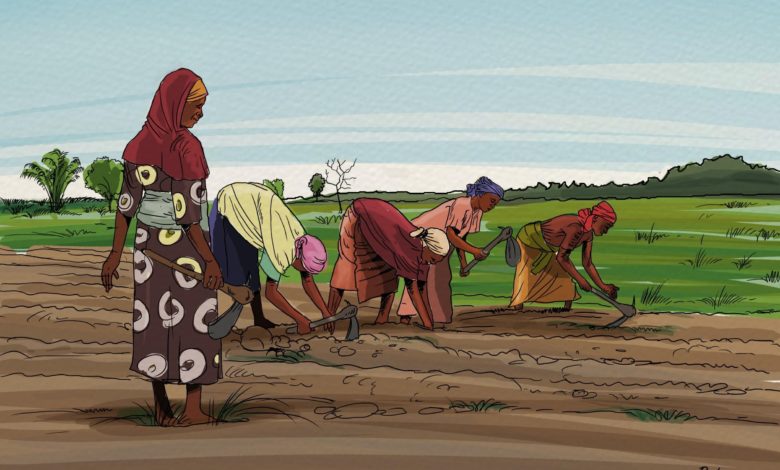Int’l Day of #RuralWomen: The Invisible Pillars Of Society

The International Day of Rural Women commemorated on October 15 annually is a reminder of how crucial, yet overlooked women contribute to the development of society on a daily basis.
The role rural women play across Nigeria and the world has seen them at the forefront of agriculture, food security and many other domestic roles. Improving the life of the rural woman for the betterment of their livelihood and wellbeing has never been more important in the wake of the COVID-19 pandemic.
According to the United Nations (UN), rural women constitute a quarter of the world’s population.
Also, data from the World Bank shows the population of rural people in Nigeria stood at over 98 million in 2019, where 26.25 percent were women.
These women contribute greatly to the agricultural labour force and perform the bulk of unpaid care and domestic work within their families and their communities as a whole, the UN said.
The organisation also noted that if rural women had access to the same agricultural assets and education as their male counterparts, the number of hungry people could be reduced by up to 150 million.
“Women farmers may be as productive and enterprising as their male counterparts but are less able to access land, credit, agricultural inputs, markets, and high-value agrifood chains and obtain lower prices for their crops,” the UN started.
Compared to other countries, the quality of life of rural women in Nigeria falls below the expected standard due to many socio-economic factors. This is mostly due to poverty, illiteracy, diseases, the lack of medical facilities and the lack of information and education which may equip them in living better lives.
Also, cultural factors have played a role, with rural women being the most exposed to discrimination where it comes to inheritance and owning land and property.
The discrimination does not end there, as these women also have no voice and have no place to make any decisions at the local government level or access village heads to plead their plights.
Because of this, it has become necessary for non-governmental organisations and civil societies to raise awareness of how much rural women participate and contribute to the development process. Such groups also call on governments to sensitise the public on the role rural women play as stated by the Women’s World Summit Foundation.
The UN Women Executive Director, Phumzile Mlambo-Ngcuka, has therefore urged that all these gaps must be addressed.
“On this International Day of Rural Women, our commitment to leave no one behind has never been more urgent. We must use this crisis as an opportunity to direct attention and resources to empower rural women and eliminate the long-standing obstacles to their progress so that we can emerge from COVID-19 as a stronger, better balanced, resilient and caring society,” she said.
Support Our Journalism
There are millions of ordinary people affected by conflict in Africa whose stories are missing in the mainstream media. HumAngle is determined to tell those challenging and under-reported stories, hoping that the people impacted by these conflicts will find the safety and security they deserve.
To ensure that we continue to provide public service coverage, we have a small favour to ask you. We want you to be part of our journalistic endeavour by contributing a token to us.
Your donation will further promote a robust, free, and independent media.
Donate HereStay Closer To The Stories That Matter




